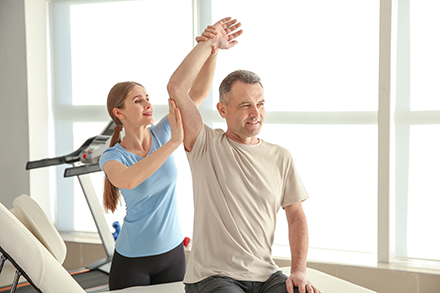Reactive Balance Training
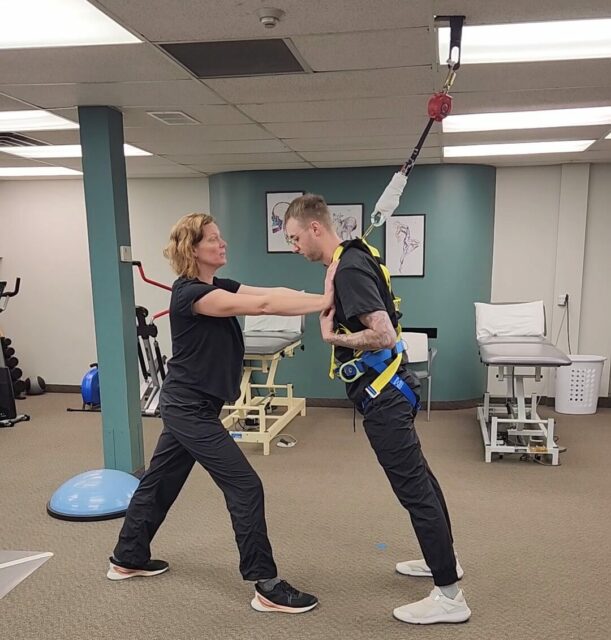 Reactive balance is the balance you need to recover should you stumble, trip, get bumped, or jostled. Reactive balance requires you to step very quickly to prevent a fall when you have lost your balance. An example would be losing your balance on an icy sidewalk.
Reactive balance is the balance you need to recover should you stumble, trip, get bumped, or jostled. Reactive balance requires you to step very quickly to prevent a fall when you have lost your balance. An example would be losing your balance on an icy sidewalk.
The goal of reactive balance training is to take fast steps to recover your balance without assistance.
The cost is $70.00 for your initial assessment which will include patient education and an assessment of your current balance abilities. You will be booked 2 weeks after the initial assessment for the intervention on the slip trip trainer this cost is $50.00. Each session will be 1 hour.
The first session (pre-intervention) will include an orientation video of the harness and slip trainer. You will complete outcome measure balance testing, there will be a progression of perturbations to familiarize, as well as be given exercises to work on at home. Two weeks later will be the intervention where slips and trips will be randomly administered on the slip trainer. This will progress as tolerated to include dual tasking.
Acupuncture
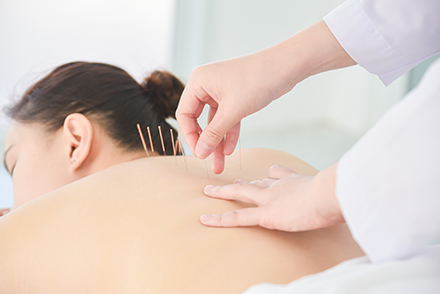
Anatomical acupuncture is a more modern approach based on anatomy and physiology. Most treatments at GHC are comprised of anatomical acupuncture by trained physiotherapists.
Acupuncture can be used for a variety of musculo-skeletal conditions such as sprains, strains, tendonitis, migraine and tension headaches, osteoarthritis, facial pain and neuromuscular disorders i.e. Bell’s palsy.
It is best for the patient to avoid very heavy meals before or after treatment and to avoid alcohol or sedatives four hours prior to treatment.
There is almost a complete absence of adverse side effects, except for occasional slight bruising. People with pacemakers should avoid electrical stimulation. Hemophiliacs and pregnant women are treated with caution. We only use sterile disposable needles to prevent the risk of any type of infection.
Assistive Device Program Assessments
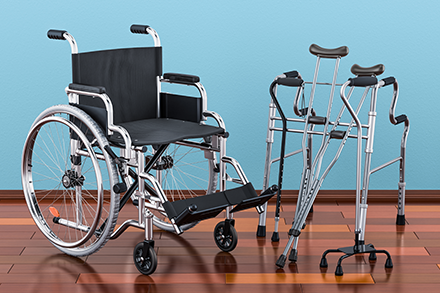
Once the patient application is completed during the assessment, the patient can go to a vendor in Sault Ste. Marie to purchase the equipment. A list of vendors will be provided to the patient at the end of the assessment. The mobility aid will allow the patient to become more independent in their home and in the community. The mobility aid will also aid in patient safety, where their fall risk is significantly decreased.
Ergonomic Assessment

These types of stresses on the body can cause pain and injury.
The assessment is followed with a written report and follow-up to provide and help implement solutions and modifications to reduce stress and pain.
Physical Demands Analysis (PDA)

Concussion Rehabilitation
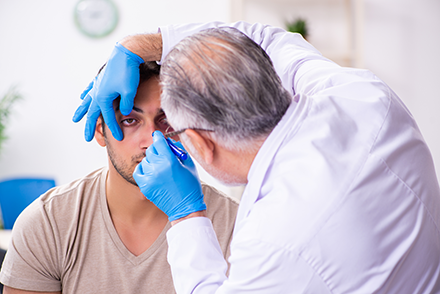
Concussions can affect various parts of the brain. They have been described as the most complex injury to the most complex organ in the human body.
Patients who receive concussion rehabilitation undergo a thorough assessment where they are evaluated on their coordination, balance, memory, eye function, active range of motion of the cervical spine and a neurologic screening assessment.
Patients are then treated with manual therapy, balance/neck strengthening/proprioception exercises and postural education.
Vestibular Rehabilitation (Vertigo)
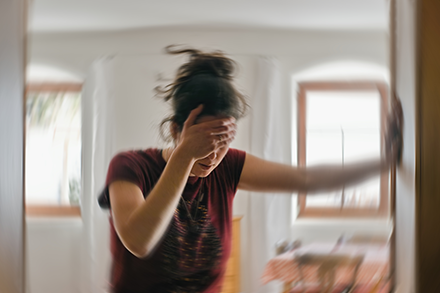
Positional vertigo is a condition of the inner ear and is the most common type of vertigo. This type of vertigo is typically brought on by a change in head position. The positions that usually trigger vertigo are rolling in bed or looking up. This is often accompanied by nausea and vomiting. You may feel unwell for several hours after an attack.
Positional vertigo is diagnosed from a thorough history and by performing special movement tests designed to reproduce vertigo. A doctor or vertigo-trained physiotherapist is able to determine where the crystals are by seeing which head positions reproduce the vertigo and by observing your eyes for abnormal movements.
The treatment for vertigo involves a series of head movements which allow the crystals to move back where they belong. It is a very safe procedure when performed by trained physiotherapists. Patients should have somebody drive them to their first several appointments because they may feel unwell after the assessment and treatment procedures. This may make driving unsafe.
The cure rate is about 95%, with an average of two to three treatments.
Post-Operative Rehabilitation
Physiotherapists at GHC Physiotherapy will provide collaborative care for individuals who have undergone surgery.
Post-operative rehabilitation will help individuals to regain strength and range of motion and return to activities of daily living and sport.
Sports Injury Rehabilitation
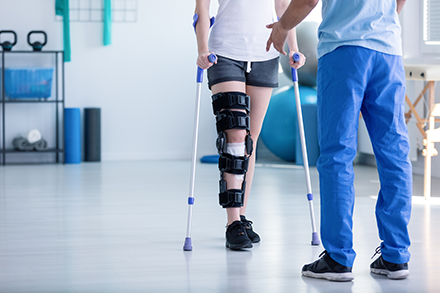
Custom Exercise Program
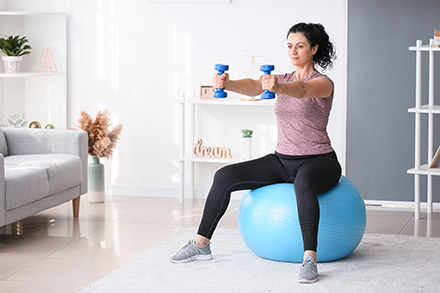
Motor Vehicle Accident Injuries

Chronic Pain Treatment
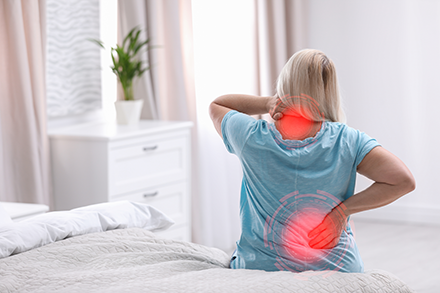
GHC Physiotherapists can help patients reduce and manage chronic pain by using a holistic, biopsychosocial approach to therapy.
Treatment includes pain education, manual therapy, and exercise prescription. A gradual return to physical activity includes tools to understand and manage pain flare-ups and a safe and novel approach to movement.
Worker's Compensation Injuries

Physiotherapy is a safe and fast way to recover from work-related injuries. It effectively treats job injuries for people of all ages promptly and effectively.
GHC Physiotherapy can help individuals recover from work-related injuries and will work with WSIB to coordinate their treatment and help them return to work.


